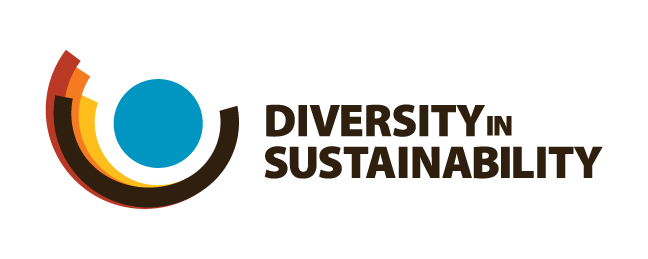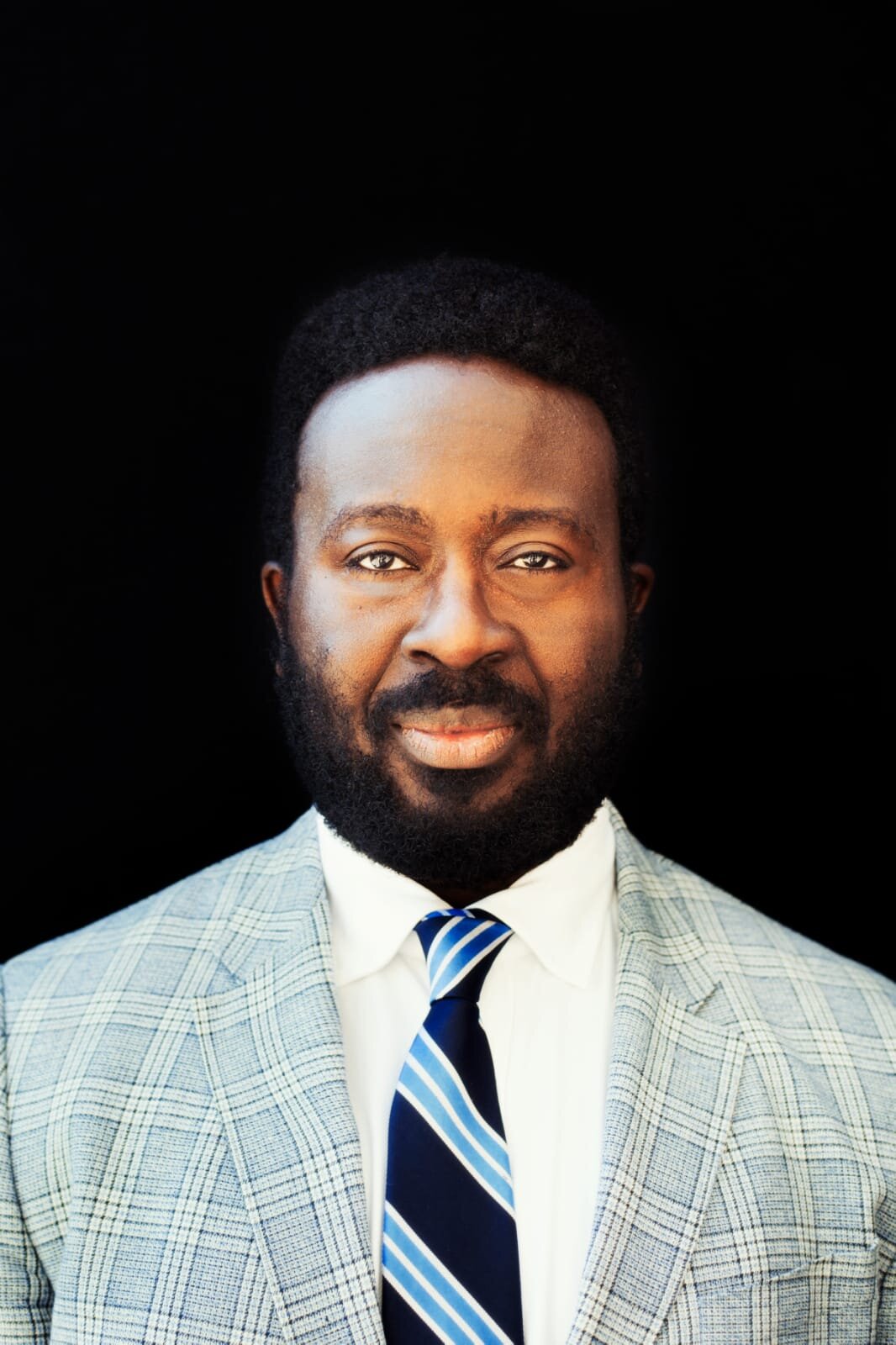Christian Smith: equity in fashion
Who are you?
A work in progress. Have been in the field of sustainability for over ten years with my preconceived ideas and notions always being challenged. Having started of on the environmental side of things, I now focus on social but what I really want to see is a more integrated approach where organizations work on the two aspects together. That's the direction I am heading now personally and trying to drag whomever I can to join me. I am frustrated but hopeful that we can find some ways to handle the range of issues that we are about to face before the collateral damage is overwhelming.
What made you realize that you should be in the field of sustainability?
“Growing up in Sierra Leone, I never realized what an incredible place it is. In terms of geography, the historical significance of such a place, as well as it’s natural properties (gift and curse). I found that as a Sierra Leonean, we always spoke about how everything outside of Sierra Leone was better. In 2018, I lived in Brazil for just under a year and it was there I started to understand various topics. The beauty that people marveled about in Brazil, we also have in Sierra Leone; The beaches, the hills, the soil, the joie de vivre. But through my Brazil experience, I also started to fully comprehend the position of black and brown people in society as well as the resulting damage from the exploitation of both people and natural resources. ”
It got to me. I have lived across Europe, in the USA and in Japan but Brazil brought it all together. So I dove into sustainability head first.
What was your first job working on sustainability topics? What did you learn from that experience?
This was in online retail. My focus was on operational sustainability - GHG's, energy source, packaging. I learned that no matter how big, or fast moving, or innovative a company might be, there are always oversights, things that can be improved when seen from a different lens.
I also learned that I know nothing. I spent my time there feeling like a fraud and that imposter syndrome has never really left me.
You’ve spent a lot of your career in the fashion and apparel sector. Do you get the sense that there has been an about-face on racial justice, and do you think it can/will be sustained?
I don't know. I don't think we can definitively say one way or another.
Let's see what landscape looks like in two or three years. The evidence right now, points to multiple directions. On the one hand it is clear that some organizations have not really learned. Vogue has promoted Anna Wintour (who has admitted to her wrongdoings) but the Kamala Harris front cover surfaced the same debates (lightening of a black/brown woman).
On the other side, Reebok have hired Pyer Moss founder, Kerby Jean-Raymond, who is unashamedly pro-black, as their Creative Director.
That can be seen as a bold move especially when you consider that Reebok is owned by the more conservative Adidas Group. I have also noticed more D&I roles coming up but let's see what representation looks like and produces in the next few years before deciding whether fashion has taken a step forward.
You’ve also toggled between the private sector and the non-profit sector. What differences have you found between working in these two environments?
The dynamic is different and as weird as it is to say, so are the people. Pace in the private sector is faster but you are closer to the results you want to achieve in the supply chain. From the NGO perspective, we get to engage with a lot of stakeholders from so many different sides of the argument but we don't get our hands dirty in the same way - but each NGO is different and my two NGO roles have been with multi-stakeholder initiatives. In both cases, I love the international aspects of the work. That we are trying to impact the lives of people in so many different places at a time when certain groups of people want to focus on putting up barriers - it's much too late for that.
In terms of the people, the goals of the two types of organizations are different so it's natural that different types of people are attracted to different sectors. But this is a major failing, there needs to be more switching between sectors to bring the two sides closer together.
Why do you think diversity in sustainability is important?
“Since my work is in the apparel and footwear industry, I’d use that as the basis of my response. Between 70-85% of workers in the industry are women, of those, about 80% of those are black or brown women (and I include countries like China/Vietnam in this definition). Looking at the other side of the industry, CEO’s, C-suite in general, marketers, designers, in fact most of the industry is white. On top of that, when looking at the ways in which fashion is inspired, it takes so much from street (black) culture, from Native Americans, from so many non-white places. That gap in representation, that gap in power and ownership needs to be addressed. But more importantly, the voices of those who are directly linked to supply chains need to be heard at the top. ”
A more diverse sustainability landscapes enables more voices to be heard and acted on. Especially as we try to address climate change and all its associated issues. Across the globe, minorities are exploited or face the brunt of decisions made by people not aware of or dismissing their concerns. We need to address that and diversity is a way to begin that process.
Do you have a mentor? How have they helped you in your career or personal growth?
Professionally, I don't really. I want one so if anyone is interested, let me know. I am fortunate to have met some really incredible people during my journey. They have inspired me to learn, to grow and to be open. I get the most energy and growth from my peers though. Being able to sit, discuss, analyze, share books and podcasts. That's the kind of mentorship I have had so far. Personally, I have two uncles that have been amazing. They are both professors and have supported my growth and development in ways they probably do not even understand.
Of the different projects you’ve worked on, what have you been most proud of?
Usually when I complete something, I have more of a quiet sense of satisfaction and then the next thing comes. Having said that, I did a global roadshow for a company, it involved a lot of training and massive bouts of imposter syndrome. However, it was my first time really connecting with the supply chain - seeing first hand the way clothes are made, the massive investment that goes into it and the passion, expertise and dedication of the people working in the factories.
Is there a quote or mantra that you live by, and why?
Being at the forefront of issues something I find exciting, where questions are abundant and answers lack clarity so I choose this one:
"Whenever you find yourself on the side of the majority, it is time to pause and reflect." — Mark Twain
What issues in sustainability are you most concerned about?
Climate justice and living wages. These two topics deserve an essay each.
What development(s) have excited you most in the field?
Regenerative agriculture - there is a big focus on circularity right now, but I love the idea that whatever we do going forward needs to be regenerative.
Are you optimistic or pessimistic about the future, and why?
This really depends on the day. I believe that we are too late in addressing key issues. However, there is a growing (generational) movement that makes me optimistic that in addressing the impacts of climate change, we will do so justly. Post-Covid, post-Trump, post-BLM, we have a decision to make on what kind of future we want - many find what we have seen in the last year distasteful, disheartening but awakening. We can do better. We must do better.



